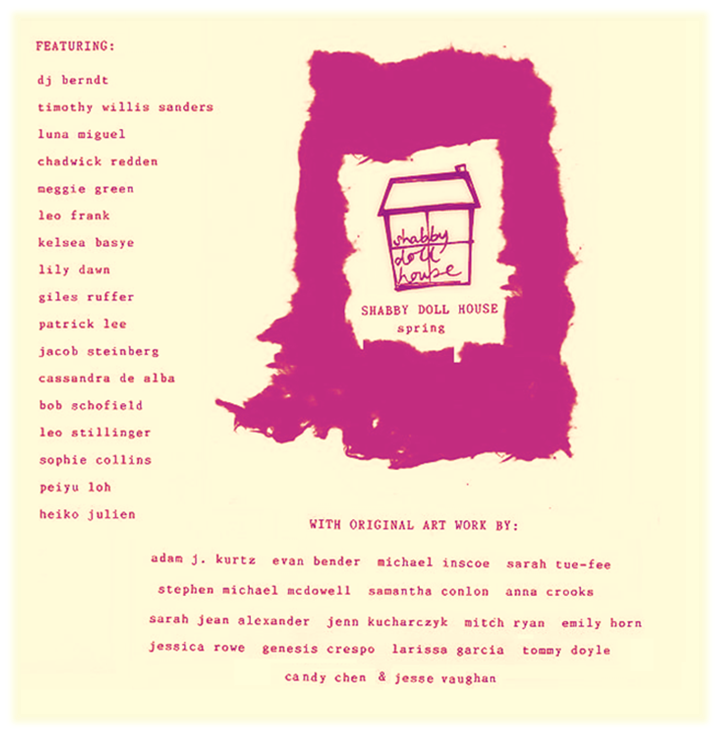STACEY: Hi Lucy, thanks for agreeing to answer some q’s. You run an online lit journal called Shabby Doll House, do you want to tell us a little bit about that?
SHABBY DOLL HOUSE: Hi Stacey.
Shabby Doll House (est. 2012) is an online publication that I started in order to showcase work that I felt excited about, but that didn’t seem to have a home. We publish various forms of literature alongside original visual artworks made specifically to accompany the writing. We have published short stories, poetry, tweet compilations, gchats, watercolour paintings, .gifs, photographs, collages… It is kind of a mix of everything, but I think it has developed a particular style and sense of aesthetic.
I edit the website with Sarah Jean Alexander, and we aim to curate a cohesive collection of work every quarter. The general theme or aim, I think, is to distract or prevent people from feeling lonely.
S: Seems like a good thing for a online publication to want to achieve. What is the submission process like and roughly how many pieces would you get for every issue? Are there particular things you look for when selecting? Read more…


